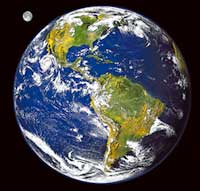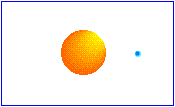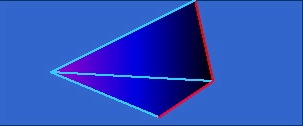 Automation
Automation 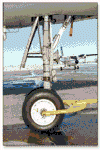
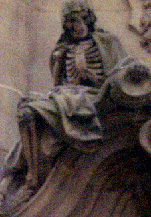
"Warfare is one of the oldest of human crafts. Death, that great harvester of lives, is depicted as holding his weapon, the scythe which is also a tool. The 'art of war' is a vastly older term than military science.' Fist the mechanization, and then the automation of the means of killing in our own time, however, have destabilized those ancient practices and rituals we call war, a transformation that has placed us all at great peril."
Pursell, p. 146.
Michio Kaku, pp. ix-69. Pursell, 145-191.
Literary Intellectual, historian |
Scientist, physicist |
|---|---|
Pursell |
Kaku |
"It was the fate of modernity to see the natural displaced by the artificial, the organic by the inorganic, and change by the planned, then the underground provided a picture of the future -- of the kind of world modern people would build...." "Finally, The Machine that keeps the whole human race alive beneath the earth fails, and one by one the life support systems fail." E. M. Forster,"When the Machine Stops" "The sewers of Paris, London and a host of other cities during the nineteenth century, were deeply implicated in the political and social discourses of their time." "All over the world, nature was conquered and disciplined, and even the cities, which at first glance appeared to be the very epitome of the artificial and the constructed, were perceived to be feminine organisms: wastelands in some accounts. wilderness in others, and jungles in others." |
"With Newton's mechanics came powerful machines, and eventually the steam engine, the motive force which reshaped the world by overturning agrarian society, spawning factories and stimulating commerce, unleashing the industrial revolution, and opening up entire continents with the railroad." "Life in Newton's time was short, cruel, and brutish. People were illiterate for the most part, never owned a book or entered a classroom, and rarely ventured beyond several miles of their birthplace. During the day, they toiled at backbreaking work in the fields under a merciless sun. At night, there was usually no entertainment or relief to comfort them except the empty sounds of the night. Most people knew firsthand the gnawing pain of hunger and chronic, debilitating disease. Most people would live not much longer than age thirty, and would see many of their ten or so children die in infancy."
|
"The need to bring cities under control, to make them safe for the masculine pursuits of profit, politics and power, required also that male control be exerted 'down there', in the deep recesses of the sewers where corruption and infection were rampant and all that was unlawful held sway." p. 181. |
By the nineteenth century, a period of intense scientific discovery was well underway. Remarkable advances in science and medicine helped to lift people out of wretched poverty and ignorance, enrich their lives, empower them with knowledge, open their eyes to new worlds, and eventually unleash complex forces which would topple the feudal dynasties, fiefdoms, and empires of Europe.
|
"It is sometimes maintained that war is the greatest stimulus for technological change, and the twentieth century provides plenty of evidence that this might, indeed, be true. The computer stands as a case in point. Although analogue computers, using electro-mechanical movements, were in development during the 1930s, wartime created a great need for fast computations, especially of ballistics and cryptography" p. 154. |
By the end of the twentieth century, science had reached the end of an era, unlocking the secrets of the atom, unraveling the molecule of life, and creating the electronic computer. With these three fundamental discoveries, triggered by the quantum revolution, the DNA revolution, and the computer revolution, the basic laws of matter, life, and computation were, in the main, finally solved. |
"The 'automated battlefield' began in 1966 with Robert McNamara's 'wall' at the demilitarized zone in Vietnam. This was to be a line of sensors which would detect any movement back or forth between 'our' side and 'theirs.'...with Asians serving as guinea pigs in our tests of deadly new technology." p. 156. |
Clearly, we are on the threshold of yet another revolution. Human knowledge is doubling every ten years. In the past decade, more scientific knowledge has been created than in all of human history. Computer power is doubling every eighteen months. The Internet is doubling every year. |
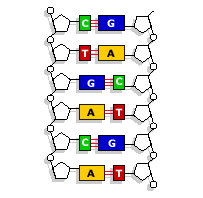 |
The number of DNA sequences we can analyze is doubling every two years. Almost daily, the headlines herald new advances in computers, telecommunications, biotechnology, and space exploration. In the wake of this technological upheaval, entire industries and lifestyles are being overturned |
|
The Three Pillars of Science Matter • Life • The Mind These three elements form the pillars of modern science. Historians will most likely record that the crowning achievement of twentieth-century science was unraveling the basic components underlying these three pillars, culminating in the splitting of the nucleus of the atom, the decoding of the nucleus of the cell, and the development of the electronic computer. With our basic understanding of matter and life largely complete, we are witnessing the close of one of the great chapters in the history of science. |
|
Today, tens of millions of transistors can be crammed into an area the size of a fingernail. In the future, our lifestyles will be irrevocably changed when microchips become so plentiful that intelligent systems are dispersed by the millions into all parts of our environment.
"There is no better scientific consensus on any other issue I know --except perhaps Newton's second law of dynamics."
James Baker, head of the NOAA,
U.S. National Atmospheric and Oceanographic Administration
p. 73, Ross Gelbspan, Boiling Point.
Kaku, Science & the future: Visions
"At present, our understanding of the brain is quite primitive."
p. 114.
"Ralph Merkel of Xerox PARC has made some rudimentary estimates....He estimates that by around 2010 the technology will finally be cheap enough to begin this awesome task." [The $340 billion cost of slicing the brain thin enough to map its ganglia neuron by neuron.] The actual sorting out of the neurons in the brain would then take three years and cost about $120 billion....one still has to determine how the signals move inside the brain and how the various organs are connected to it."
p. 115.
"Will robots inherit the Earth?' he asks. 'Yes but they will be our children.' Says Marvin Minsky because "We owe our minds to the deaths and lives of all the creatures that were ever engaged in the struggle called evolution."
"In the final analysis, it is up to us to decide among these various choices, given their diverse impacts on our lives, our families, and our jobs. It is we who must decide how much authority we wish to to give our creations. Are we to be masters of the machines, or will machines become our masters?"
pp. 116-117.
This page was created, by J. Siry.

